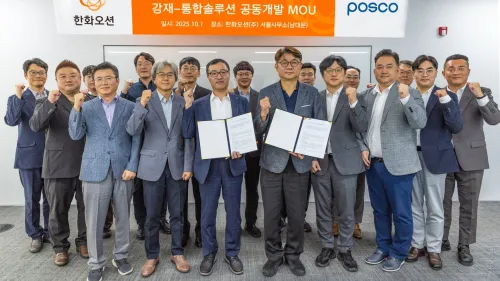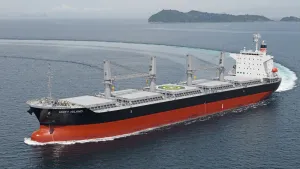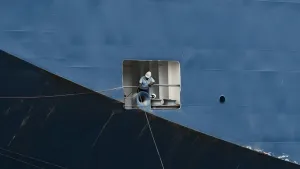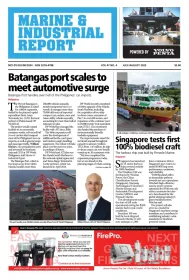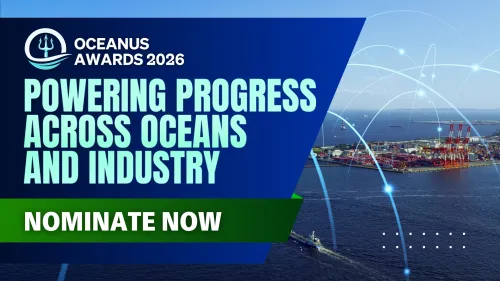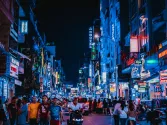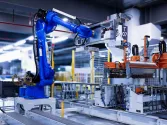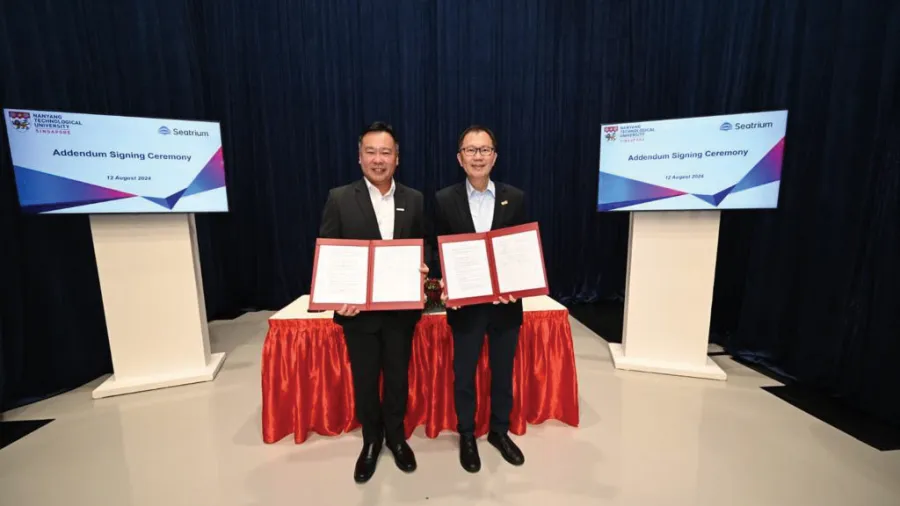
Seatrium and Nanyang Technological University Launch new energy laboratory and Forge partnership for Workforce transportation
Seatrium Limited (Seatrium or the Group) and Nanyang Technological University, Singapore (NTU Singapore) today officially signed an addendum and training Memorandum of Understanding (MoU) during the renaming ceremony of the former Sembcorp Marine Lab, reaffirming both parties’ commitment to advancing green and sustainable energy solutions in the Offshore and Marine (O&M) sector. The newly named Seatrium New Energy Laboratory will continue to drive innovation, focusing on addressing challenges related to new energies, offshore renewables, marine decarbonisation, and digitalisation within the Offshore & Marine (O&M) industry.
The areas of research under the addendum include:
a. Ammonia Release Mitigation and Capture System
The feasibility of using ammonia for O&M applications requires in-depth evaluation of safety considerations and mitigating measures. The research will pivot towards safe containment and treatment of purged ammonia from the system during the vessel/plant’s normal operation including loading/unloading of ammonia for safe management of the toxic gas before releasing to the atmosphere. This will result in development of a compact, easy-to-use, and safe ammonia capture system, ensuring that the final discharge treatment method meets or exceeds regulatory requirements.
b. MOF-based Post-Combustion Carbon Capture System
Post-combustion carbon capture is a vital tool for the O&M industry to meet the International Maritime Organisation’s (IMO) revised Greenhouse Gases (GHG) emission reduction targets. The research will focus on innovative carbon capture technology using metal-organic frameworks (MOFs) that aims to reduce energy consumption by utilising waste heat of the engine for desorption of MOF and achieving a smaller footprint as compared to industry prevalent amine-based carbon capture systems. This will enable adoption of MOF-based CCS onboard ships where available power and space for retrofits is limited.
c. Digitalisation Enhancing Marine Electrification
A data-driven digital twin model offers a clear view of the changing energy demands associated with marine electrification. Insights from this model will help identify suitable floating energy solutions to facilitate decarbonisation efforts along near-shore and coastal areas. This research emphasises a data-driven approach to determine the necessary floating energy infrastructure needed to accommodate the increasing energy demand. The developed model will be integrated into a digital platform that optimises the lifecycle of energy solutions and enables efficient energy distribution.
In collaboration with the Seatrium New Energy Lab @ NTU, both parties are committed to promote continuous learning and workforce development in Seatrium. This initiative will enhance skill sets through various courses offered by PaCE@NTU, including the Virtual Learning Series (VLS), Continuing Education & Training (CET) and SkillsFuture-related courses, with the goal of creating sustainable offshore energy solutions in the industry. Key curriculum areas include Artificial Intelligence, decarbonisation, renewable energy, marine thermal management, robotics, and energy efficiency technologies.
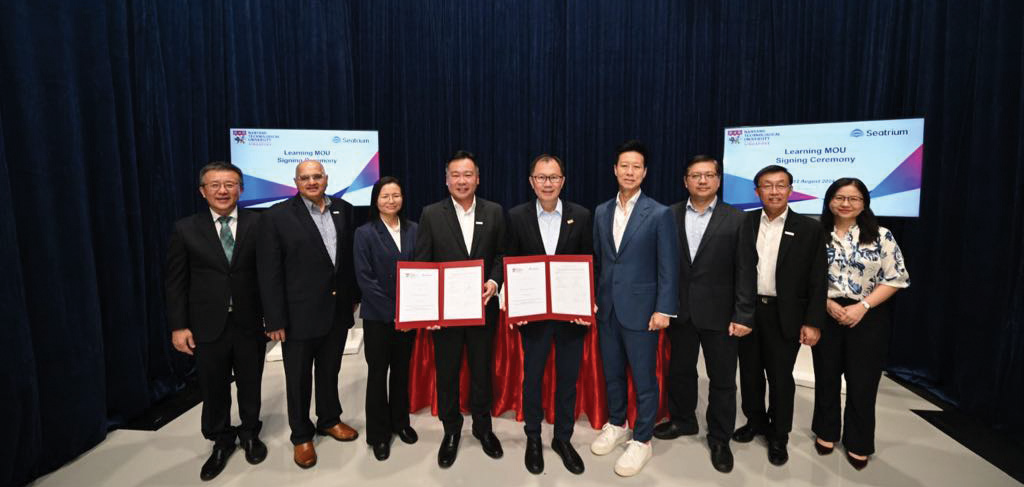
Mr Chris Ong, CEO of Seatrium, said: “Our partnership with Nanyang Technological University, Singapore underscores our commitment to advancing eco-friendly energy solutions in the O&M sector. The Seatrium New Energy Laboratory will serve as a test-bed for innovative solutions for the industry, allowing aspiring researchers to test their hypotheses to develop conceptual ideas into commercially viable solutions for the market. Our collaboration with PaCE@NTU will also empower our workforce with essential skills for a sustainable future. Together, we are not just envisioning a greener tomorrow, we are actively building it.”
Professor Ho Teck Hua, President and Distinguished University Professor, NTU, said: “The Seatrium New Energy Laboratory plays a key role in helping the maritime and offshore industry address global environmental challenges, by supporting decarbonisation and innovating more sustainable models of operation. As a university known for expertise in artificial intelligence and sustainability, we are also proud to be the education partner of choice for Seatrium. We will provide customised courses to equip maritime specialists with the skills needed to tackle the challenges that lie ahead.”
This article was originally published on Marine & Industrial Report newspaper Vol 46 No.5 Issue last October 31, 2024.
